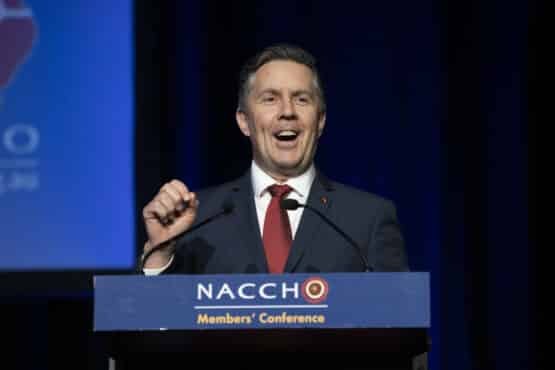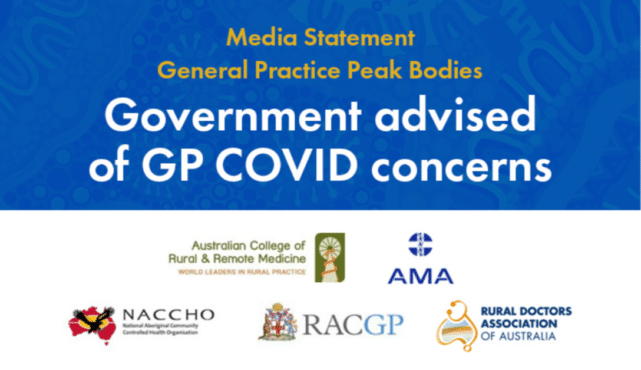

Tens of thousands train in contact tracing for the bush
More than 50,000 people have accessed specialised pandemic training for Aboriginal and Torres Strait Islander health workers and health practitioners to help protect remote Australian communities from coronavirus outbreaks.
The five online modules, developed by a team at The Australian National University (ANU), include training on how to conduct contact tracing within remote Aboriginal and Torres Strait Islander communities.
The training was developed following a request from the National Aboriginal Community Controlled Health Organisation (NACCHO) and the Australian Government.
“We can’t eliminate COVID-19 without a vaccination, but we can reduce the impact of disease by ensuring we have a skilled workforce who can respond quickly to outbreaks and areas of community transmission,” Ms Alyson Wright, an epidemiologist from the ANU Research School of Population Health who co-ordinated the development of the modules, said.
“Contact tracing in remote Indigenous communities is likely to look very different to how we usually do it in the city or urban areas.
“There are language and cultural differences to consider, and in some places, there is a lack of telecommunications.
“Overcrowding in housing and poor condition of houses will mean that COVID-19 spreads extremely quickly in these communities. To keep communities safe, we must act quickly and to do that we need to use local Aboriginal or Torres Strait Islander people who have the cultural knowledge and skills to isolate cases and find contacts,” Ms Wright said.
Researchers say telecommunication has its limits in remote Australia. In some communities, there is no mobile coverage or landlines, meaning it is not possible to trace contacts via a phone call or SMS message.
There are also sensitivities in Aboriginal and Torres Strait Islander communities that need to be considered.
“The Aboriginal Health Workforce have important cultural knowledge and key relationships in their communities, so they are critical to helping with public health responses such as contact tracing, public health messaging in community, and supporting quarantine and isolation measures,” Ms Wright said.
“One of the most important things for public health responses in the bush is the need for involvement of Aboriginal and Torres Strait Islander peoples on the ground locally.
“The Aboriginal leadership was at the forefront in responding the threats of the pandemic. They asked for border closures back in February and March and this clearly reduced the spread of the disease. We need to continue to build capacity in this sector.
“When we do interviews in remote communities, we use the language ‘right place, right time, right person’. This is about understanding key cultural considerations when working with Aboriginal and Torres Strait Islander communities. Right person – means who one can talk to, right place means where they can talk and right time means what can be shared with others. Training local Aboriginal Health Workers and Practitioners in contact tracing means that they already understand these cultural nuances.
“For example, a young woman speaking to a male elder in a community might not be culturally appropriate.”
It is hoped the cultural and practical training will help improve public health responses in remote communities amid the second wave of the pandemic.
“Aboriginal and Torres Strait Islander people are considered at greater risk of severe forms of COVID-19, because of underlining chronic health conditions in this population,” Ms Wright said.
“The Aboriginal Community Controlled Sector has done a lot of work in stopping the virus. This training is a part of building capability of Aboriginal Health Workers and practitioners to keep these communities stay safe.”
Dawn Casey Deputy CEO NACCHO said: “Aboriginal Health Workers have been invaluable in managing previous outbreaks in Aboriginal and Torres Strait Islander communities.
“We need to use their expertise in contact tracing for COVID-19, and these training modules give them the information to do this effectively and safely.
“We need public health units across Australia to draw on the expertise within our ACCHOs to manage outbreaks rapidly and in a culturally safe way.”
The training modules includes an introduction to COVID-19 epidemiology, contact tracing, interviewing, the use of PPE in remote communities and data management.
They can be found online here:
https://covid-19training.gov.au/login
https://ahmrc.docebosaas.com/learn/course/internal/view/elearning/41/COVID-19ContactTracing
The training modules are nationally accredited by National Aboriginal and Torres Strait Islander Health Workers Associations and their development was funded by the Australian Government Department of Health.
FOR INTERVIEW:
Ms Alyson Wright
Research School of Population Health, National Centre for Epidemiology and Population Health
M: 0458 967 021
E: Alyson.wright@anu.edu.au
Dr Jason Agostino
Medical Advisor for NACCHO and Lecturer in general practice
ANU College of Health and Medicine
M: 0438659544
E: jason.agostino@anu.edu.au
For media assistance, contact Rachel Curtis on 0459879726 or the ANU Media Team on +61 2 6125 7979 or at media@anu.edu.au


